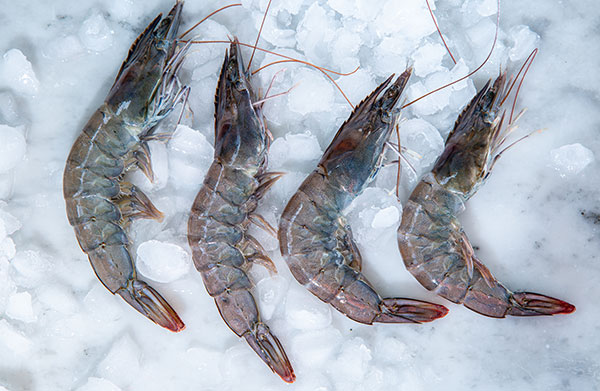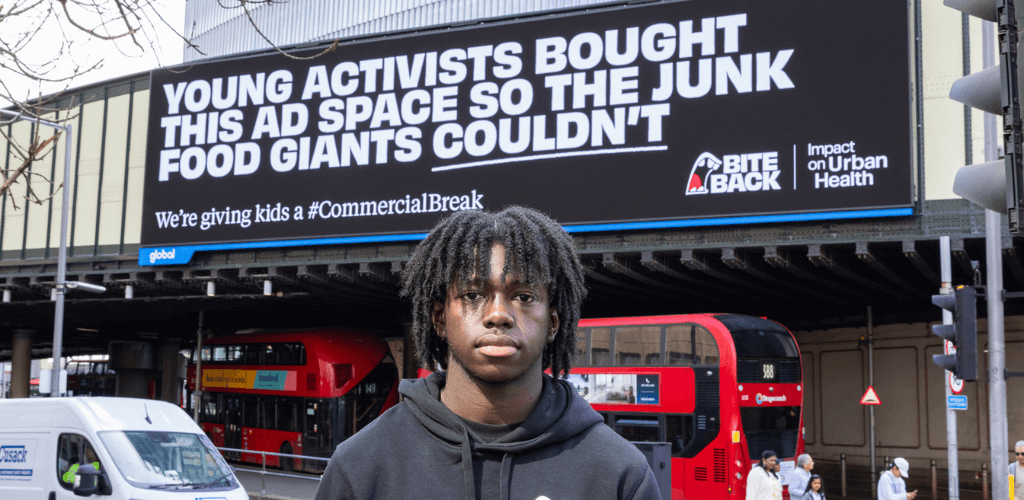Sustainable British prawns from two UK prawn farms are now available for delivery in a step forward for ethical sourcing of one of the most problematic and popular seafoods.
Based in Stirlingshire, Scotland, Great British Prawns had previously been supplying restaurants and chefs within a two-mile radius.
Now, households across the UK are able to order the farm’s saltwater prawns online, with 1kg packs (around 35-40 large king prawns), delivered in fully recyclable packaging with no polystyrene, at a cost of £40 plus delivery. Sustainable British prawns are also available for home delivery from another UK prawn farm, Flo Gro, in Lincolnshire, which uses a similar sustainable farming system.
Great British Prawns Director, James McEuen, said: “We’re really proud of our sustainable king prawns. Great British Prawns’ approach means that we are able to offer these with the highest welfare standards and with no antibiotics or air miles – delivered direct to households across the UK.”

The farm is the UK’s first so-called ‘clean water’ farm, as it uses a recirculation system that cleans and recycles the majority of the water used by the prawns. This means it doesn’t need to add antibiotic and other chemical inputs common in overseas prawn farming and reduces its impact on the surrounding environment.
It is powered by energy from an anaerobic digester on a neighbouring dairy farm, and uses insulation and bio-filters to clean and recycle its waste, and use heat that would otherwise have been lost.
“By buying Great British Prawns, people across the UK are supporting a new and sustainable approach to seafood production,” said McEuen.
Currently, most of the UK’s king prawns are sourced frozen from farms in the Far East and Central America, travelling on average 6,000 miles and produced using methods widely condemned for their environmental practices. This includes a practice called ablation that is commonly used to pluck out the eyes of female shrimps to prolong their fertility.
UK supermarkets have been criticised for their sourcing from some overseas prawn farms after a Guardian investigation uncovered a network of modern slavery, while imported prawns have been delisted by ethical suppliers such as Cornwall-based Fish for Thought.













Great news. I had heard of this in Scotland. Good to know there’s a more local one. I haven’t bought prawns for years as saw a programme about their production in Asia
Disagree with this. Prawns have as much of a right to a life free from exploitation and murder. To rely on a neighbouring dairy farm, which comes with its own horrific animal exploitation and environmental impact, is also working in the wrong direction,
Rather than trying desperately to find ways to prop up our systems of oppression to sentient beings, we should be transitioning to a completely plant-based food system. We need to help and fund farmers’ transition their animal agriculture farms to plant farms, national parks or animal sanctuaries.
What are the prawns fed? A lot of the issue with fish farming is the input in kg that are used to create a smaller kg output.
Hi Alice, we contacted the farm to find this out for you, and this is their response: ‘The young prawns are fed algae which is made in house as a by-product. Other prawn feed at middle stage, is GMO free, EU and MSC approved and made from sustainably sourced fishmeal (wild and bi-catch), other alternative natural marine proteins (eg ragworm) and algae oil. Older prawns are carnivorous and are currently fed on squid – however, the team are working flat out to change this to more sustainable rag worms, which will be bred in house (again using byproducts). They use only GMP+, FEMAS & GLOBALGAP suppliers for feed.’
I sort of agree with George BUT – we exploit all life forms…. if we are farming – even vegetable farming – we kill/maim/destroy untold numbers of insects and sometimes mammals. The ‘conventional’ ways of growing are horrific. Organic is far better – but still – we have that ethical quandary… ‘Have we the right to kill other beings to get our food?’
I have come to the conclusion that all life forms are equally due respect. I also conclude that there is NO way of cruelty-free farming. A hunter/gatherer lifestyle is far more kind/logical but sadly not effective for all of us. So we can only reduce the harm – try and live in some harmony with our fellow creatures – all of whom also predate on each other….
I think the trick is to make every type of ‘food production’ as sustainable and pain/cruelty-free as possible. – to get back to being animals – not try to be god….We have a place in the food chain – we should try and not upset the balance. Rewilding, low impact, mixed, organic, and most of all – if we grow stuff WE have to do the work – not chemicals, not machines, not factories…. It would mean most of us going back to the land – not sitting at computers….
I don;’t know if humans would go for it – not in the west anyhow – we already import other people to do most of the hard work!!